Remote Work Opportunities and Job Search Strategies

Remote work is the future of work. With the COVID-19 pandemic having accelerated the shift towards remote work, job seekers worldwide are now exploring the flexibility and opportunities that remote positions offer. But how do you find and secure the perfect remote job? This guide will walk you through everything you need to know, from the benefits of remote work to effective job search strategies.
The Rise of Remote Work
Remote work has grown from a niche trend to a mainstream option for many businesses. Companies have realized the benefits of allowing employees to work from home, including increased productivity, reduced overhead costs, and access to a global talent pool. For job seekers, this means more opportunities to find fulfilling roles without being tied to a specific location.
What is Remote Work?
Remote work is any job that allows you to work outside a traditional office setting. This could mean working from home, a co-working space, or even a café. Technological advancements have made remote work more accessible than ever, enabling professionals to collaborate effectively regardless of their physical location.
Benefits of Remote Work
Flexibility and Work-Life Balance
One of the most significant advantages of remote work is its flexibility. You can set your own schedule, which allows for a better work-life balance. Whether you're a night owl or an early bird, remote work lets you work when you're most productive.
Reduced Commute Time
Say goodbye to long commutes! Remote work eliminates the need to spend hours traveling to and from the office, giving you more time to focus on work or personal activities.
Access to Global Opportunities
Remote work breaks down geographical barriers, allowing you to apply for jobs from companies all over the world. This opens up a vast array of opportunities that might not be available in your local job market.
How to Find Remote Work Opportunities
Utilize Job Boards
Many job boards now specialize in remote work opportunities. Websites like Remote.co, We Work Remotely, and FlexJobs are great places to start your search. These platforms list remote jobs across various industries, making it easier to find positions that match your skills and interests.
Network Online
Networking is crucial in any job search, and remote work is no exception. Join online communities, attend virtual networking events, and connect with industry professionals on LinkedIn. Building relationships can lead to job referrals and insider information about remote job openings.
Leverage Social Media
Follow companies you're interested in on social media platforms like Twitter and LinkedIn. Many companies post job openings on their social media channels, and staying engaged can help you stay informed about new opportunities.
Crafting the Perfect Remote Job Application
Tailor Your Resume and Cover Letter
When applying for remote jobs, it's essential to tailor your resume and cover letter to highlight your remote work experience and relevant skills. Mention any remote work tools you're proficient in, such as Slack, Zoom, or Trello, and emphasize your ability to work independently and manage your time effectively.
Showcase Your Remote Work Skills
Employers look for specific skills in remote workers, such as communication, self-discipline, and problem-solving. Make sure to showcase these skills in your application materials and provide examples of how you've successfully used them in previous roles.
Prepare for Remote Interviews
Remote interviews are typically conducted via video conferencing tools. Ensure you have a quiet, professional-looking space for your interview, test your technology beforehand, and practice answering common interview questions. Demonstrating your preparedness and comfort with remote communication tools will make a positive impression.
Navigating the Remote Work Environment
Set Up a Dedicated Workspace
Creating a dedicated workspace is crucial for staying productive and maintaining a healthy work-life balance. Choose a quiet area with minimal distractions, invest in comfortable furniture, and ensure your workspace is well-lit and organized.
Establish a Routine
Having a consistent routine helps you stay focused and productive. Set regular working hours, take breaks, and create a daily to-do list to keep track of tasks. A structured routine will help you stay on top of your work and avoid burnout.
Stay Connected with Your Team
Communication is key in a remote work environment. Use collaboration tools like Slack, Microsoft Teams, and Zoom to stay connected with your team. Regular check-ins, virtual meetings, and casual conversations can help build strong working relationships and keep everyone aligned.
Overcoming Remote Work Challenges
Managing Distractions
Working from home can come with its fair share of distractions. To stay focused, set boundaries with family members or housemates, and minimize distractions by turning off notifications on your phone or computer. Using productivity tools like Pomodoro timers can also help you stay on task.
Maintaining Motivation
Staying motivated in a remote work setting can be challenging. Set personal and professional goals, celebrate your achievements, and take regular breaks to recharge. Connecting with colleagues and participating in virtual team-building activities can also boost your motivation.
Ensuring Work-Life Balance
One of the biggest challenges of remote work is maintaining a healthy work-life balance. Establish clear boundaries between work and personal time, and make sure to disconnect from work at the end of the day. Engaging in hobbies and spending time with loved ones can help you unwind and recharge.
The Future of Remote Work
Hybrid Work Models
Many companies are adopting hybrid work models that combine remote and in-office work. This approach offers the best of both worlds, allowing employees to enjoy the flexibility of remote work while still having opportunities for in-person collaboration.
Increased Demand for Remote Skills
As remote work becomes more prevalent, employers increasingly seek candidates with strong remote work skills. Investing in your professional development and staying up-to-date with the latest remote work tools and practices will make you a more competitive candidate in the job market.
Remote Work and Diversity
Remote work can increase workplace diversity by providing opportunities for individuals who may face barriers to traditional office work, such as those with disabilities or caregiving responsibilities. Companies prioritizing remote work can tap into a more diverse talent pool and create a more inclusive work environment.
Leveraging AI for Remote Job Search
AI-Powered Job Search Tools
AI-powered job search tools, like Robin's, can simplify your job search process by matching you with relevant remote job opportunities based on your skills and preferences. These tools use advanced algorithms to analyze job listings and recommend positions that align with your career goals.
Personalized Job Recommendations
AI-driven job search platforms provide personalized job recommendations, making finding remote jobs that match your qualifications easier. By leveraging AI technology, you can save time and effort in your job search and increase your chances of finding the perfect remote role.
Streamlined Application Process
AI-powered tools can streamline your application process by automating tasks such as resume screening and application tracking. This allows you to focus on crafting high-quality applications and preparing for interviews, ultimately improving your chances of landing a remote job.
Real-Life Success Stories
From Office to Remote Work
Meet Jane, a marketing professional who transitioned from an office-based role to a remote position during the pandemic. By leveraging remote job boards and networking online, Jane found a remote marketing role that allowed her to work from anywhere. She now enjoys a better work-life balance and has more time to pursue her passions.
Overcoming Remote Work Challenges
John, a software engineer, initially faced challenges adjusting to remote work. However, John successfully adapted to the remote work environment by setting up a dedicated workspace, establishing a routine, and staying connected with his team. He now thrives in his remote role and appreciates the flexibility it offers.
Leveraging AI for Job Search
A recent graduate, Emily used an AI-powered job search tool to find her first remote job. The platform provided personalized job recommendations and streamlined the application process, helping Emily secure a remote position that aligned with her career goals. She credits AI technology for making her job search more efficient and effective.
Conclusion
Remote work offers numerous benefits, from flexibility and reduced commute times to access to global opportunities. You can secure a fulfilling remote job by leveraging the right job search strategies, crafting tailored applications, and navigating the remote work environment effectively.
Remember, the future of work is evolving, and staying informed about remote work trends and AI-powered job search tools will give you a competitive edge in the job market.
Explore remote work opportunities and start your job search today with Robin's AI-powered tools. Sign up for free and take control of your career transformation.

